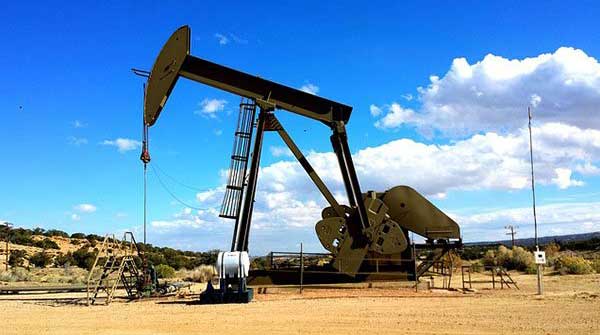And Middle East conflict has so far had limited impact on crude oil market
 Crude oil prices are strengthening and have surpassed the US$90 per barrel mark, marking a recovery from previous declines.
Crude oil prices are strengthening and have surpassed the US$90 per barrel mark, marking a recovery from previous declines.
It’s worth noting, however, that, to a limited extent, this premium is merely masking a recent drop in the prices of physical barrels, indicating a potential decrease in oil demand. So far, the conflict in the Middle East hasn’t significantly impacted the fundamental dynamics of the crude oil market.
The industry is taking notice of these developments. According to OilPrice.com contributor Alex Kimani, ‘America’s oil barons are ditching fossil fuel’.
Further, the Rockefeller Foundation has initiated programs to reduce coal-fired power usage in Asia and speed up the adoption of battery storage for renewable energy. The Foundation doubled down on its efforts after launching a high-profile campaign last month to support climate solutions, including a US$1 billion-plus pledge.
 |
| Related Stories |
| Geopolitical tensions disrupting global oil equilibrium
|
| To reduce emissions, the world needs more LNG
|
| Oil prices react to Hamas terrorist attack, but remain steady
|
Three years ago, former New York City Mayor Bill de Blasio and Comptroller Scott M. Stringer sent shockwaves through the oil and gas sector after they announced that the city’s US$226 billion pension fund plans to divest most of its fossil fuel investments over the next five years and cut ties with other companies that have been contributing to global warming.
Shortly after that, Rockefeller Brothers Fund, a family foundation built on one of the world’s biggest oil fortunes, announced that it would ditch its oil and gas investments and cease making any new investments in the future.
All this is not without reason. With nearly 10 times as many electric cars as on roads today, 80 percent of new power projected to be derived from renewables and electric heating outselling gas boilers, the International Energy Agency, in its just unveiled World Energy Outlook 2023 (WEO-2023), underlined, ‘the energy world will look differently by 2030, even under today’s policy settings’, reiterating the claim that crude oil, natural gas, and coal will peak before 2030.
“The transition to clean energy is happening worldwide and it’s unstoppable. It’s not a question of ‘if,’ it’s just a matter of ‘how soon’ – and the sooner the better for all of us,” said Fatih Birol, IEA executive director, in a statement.
The agency sees the emergence of a new clean energy economy as providing hope for the way forward, emphasizing the economic case for clean energy technologies.
The ongoing emphasis in China, the world’s largest crude importer, to shift from hydrocarbons to renewables and the potential liberalization of its economy further contributed to the International Energy Agency’s assessment. While the agency does admit that investment in fossil fuels is still necessary, it claims the growth era is over.
Given the International Energy Agency’s (IEA) reputation as the OECD energy watchdog, some within the industry view the WEO-2023 report more as a political document than a realistic assessment. ‘The IEA’s report primarily relies on its assessment that China, as a global driver of hydrocarbon demand growth, is reaching a turning point,’ emphasized Cyril Widdershoven in his piece for Oilprice.com. The IEA contends that “China is reaching an inflection point, and its total energy demand is likely to peak around the middle of this decade.” These developments are seen as positive for global efforts to combat climate change and address global warming, especially since Beijing has now become the world’s largest polluter, surpassing both the U.S. and Europe in emissions.
The IEA also based its projections on the assumption that China’s GDP growth will slow down, averaging just under four percent per year until 2030. However, Widdershoven remains skeptical of this viewpoint.
The IEA’s claim that the transition to clean energy is unstoppable is highly debatable. While the sales of new electric vehicles (EVs) are indeed increasing, it’s important to note that most of the sales rely on government subsidies or strategies, particularly in China. There are no indications that most vehicles, especially in non-OECD countries or China, will be EVs. Technical challenges, power grid availability, capacity constraints, and the cost of EVs are not fully considered (in the IEA outlook), argues Widdershoven.
OPEC bigwig Saudi oil minister Prince Abdulaziz bin Salman also accuses the IEA of ‘political posturing’. The latest rash of high-scale oil and gas mergers and acquisitions indicates that fossil fuels are here to stay, he said last week. “Exxon, Chevron didn’t buy because they want to have stranded assets,” he said at Riyadh’s FII annual investment conference.
He was referring to Exxon’s announcement of its US$60 billion acquisition of Pioneer Natural Resources and Chevron’s US$53 billion acquisition of Hess – both announced within two weeks of each other and sending waves in the oil industry.
Prince Abdulaziz said the same of his own motivations for investing in increasing Saudi Arabia’s crude oil output capacity to 13 million barrels per day. “We are investing not to create a stranded asset,” he said. Saudi Arabia, he added, wouldn’t be investing in increasing oil production capacity if there wasn’t demand for that increased production.
And so the debate continues.
Toronto-based Rashid Husain Syed is a highly-regarded analyst specializing in energy and politics, with a particular emphasis on the Middle East. Besides his contributions to both local and international newspapers, Rashid frequently lends his expertise as a speaker at global conferences. His insights on global energy matters have been sought after by organizations such as the Department of Energy in Washington and the International Energy Agency in Paris.
For interview requests, click here.
The opinions expressed by our columnists and contributors are theirs alone and do not inherently or expressly reflect the views of our publication.
© Troy Media
Troy Media is an editorial content provider to media outlets and its own hosted community news outlets across Canada.

